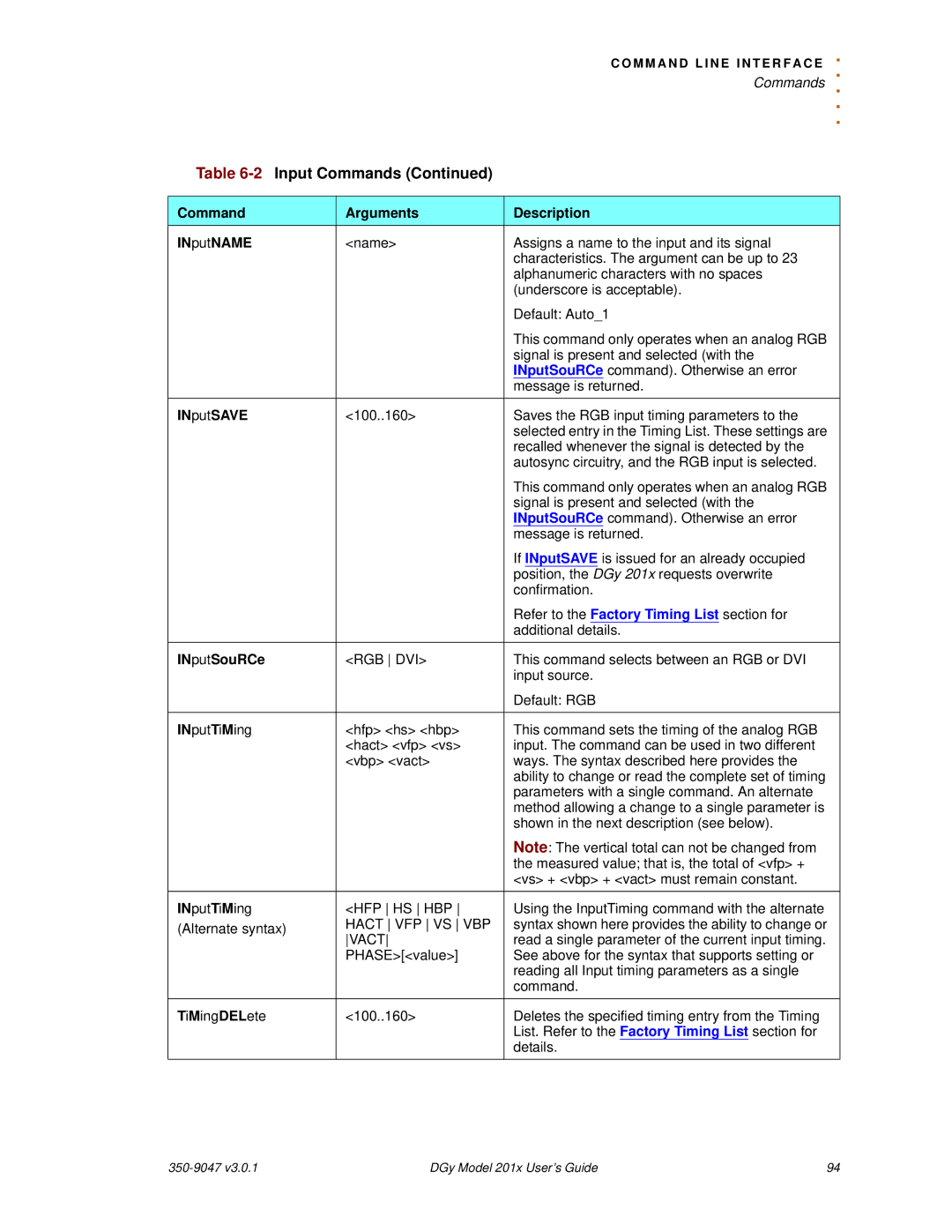C O M M A N D L I N E I N T E R F A C
.E
|
| . | |
|
| Commands | |
|
| . . . | |
Table |
| ||
|
|
| |
Command | Arguments | Description | |
INputNAME | <name> | Assigns a name to the input and its signal | |
|
| characteristics. The argument can be up to 23 | |
|
| alphanumeric characters with no spaces | |
|
| (underscore is acceptable). | |
|
| Default: Auto_1 | |
|
| This command only operates when an analog RGB | |
|
| signal is present and selected (with the | |
|
| INputSouRCe command). Otherwise an error | |
|
| message is returned. | |
INputSAVE | <100..160> | Saves the RGB input timing parameters to the | |
|
| selected entry in the Timing List. These settings are | |
|
| recalled whenever the signal is detected by the | |
|
| autosync circuitry, and the RGB input is selected. | |
|
| This command only operates when an analog RGB | |
|
| signal is present and selected (with the | |
|
| INputSouRCe command). Otherwise an error | |
|
| message is returned. | |
|
| If INputSAVE is issued for an already occupied | |
|
| position, the DGy 201x requests overwrite | |
|
| confirmation. | |
|
| Refer to the Factory Timing List section for | |
|
| additional details. | |
INputSouRCe | <RGB DVI> | This command selects between an RGB or DVI | |
|
| input source. | |
|
| Default: RGB | |
|
|
| |
INputTiMing | <hfp> <hs> <hbp> | This command sets the timing of the analog RGB | |
| <hact> <vfp> <vs> | input. The command can be used in two different | |
| <vbp> <vact> | ways. The syntax described here provides the | |
|
| ability to change or read the complete set of timing | |
|
| parameters with a single command. An alternate | |
|
| method allowing a change to a single parameter is | |
|
| shown in the next description (see below). | |
|
| Note: The vertical total can not be changed from | |
|
| the measured value; that is, the total of <vfp> + | |
|
| <vs> + <vbp> + <vact> must remain constant. | |
INputTiMing | <HFP HS HBP | Using the InputTiming command with the alternate | |
(Alternate syntax) | HACT VFP VS VBP | syntax shown here provides the ability to change or | |
VACT | read a single parameter of the current input timing. | ||
| |||
| PHASE>[<value>] | See above for the syntax that supports setting or | |
|
| reading all Input timing parameters as a single | |
|
| command. | |
TiMingDELete | <100..160> | Deletes the specified timing entry from the Timing | |
|
| List. Refer to the Factory Timing List section for | |
|
| details. | |
| DGy Model 201x User’s Guide | 94 |
